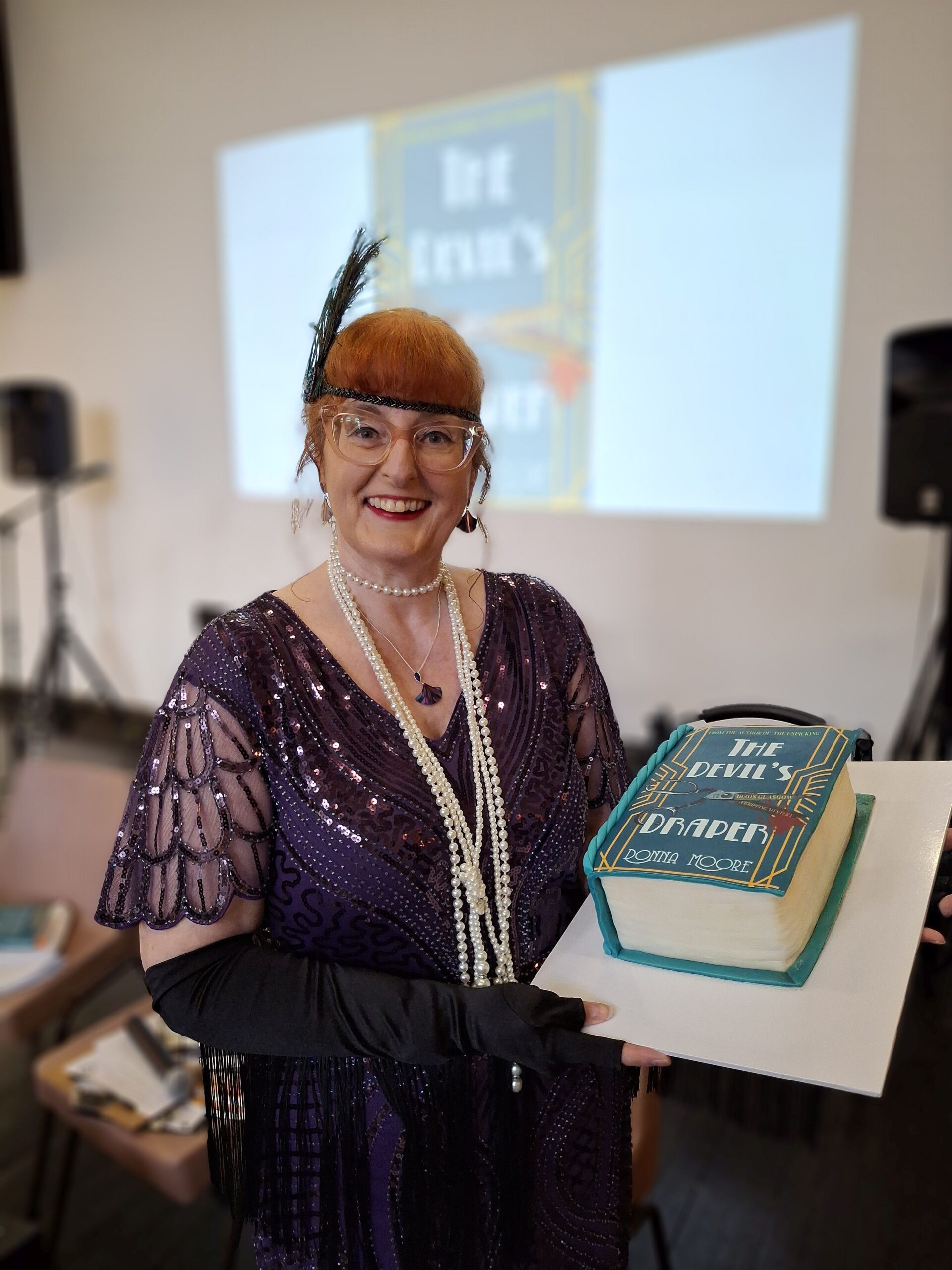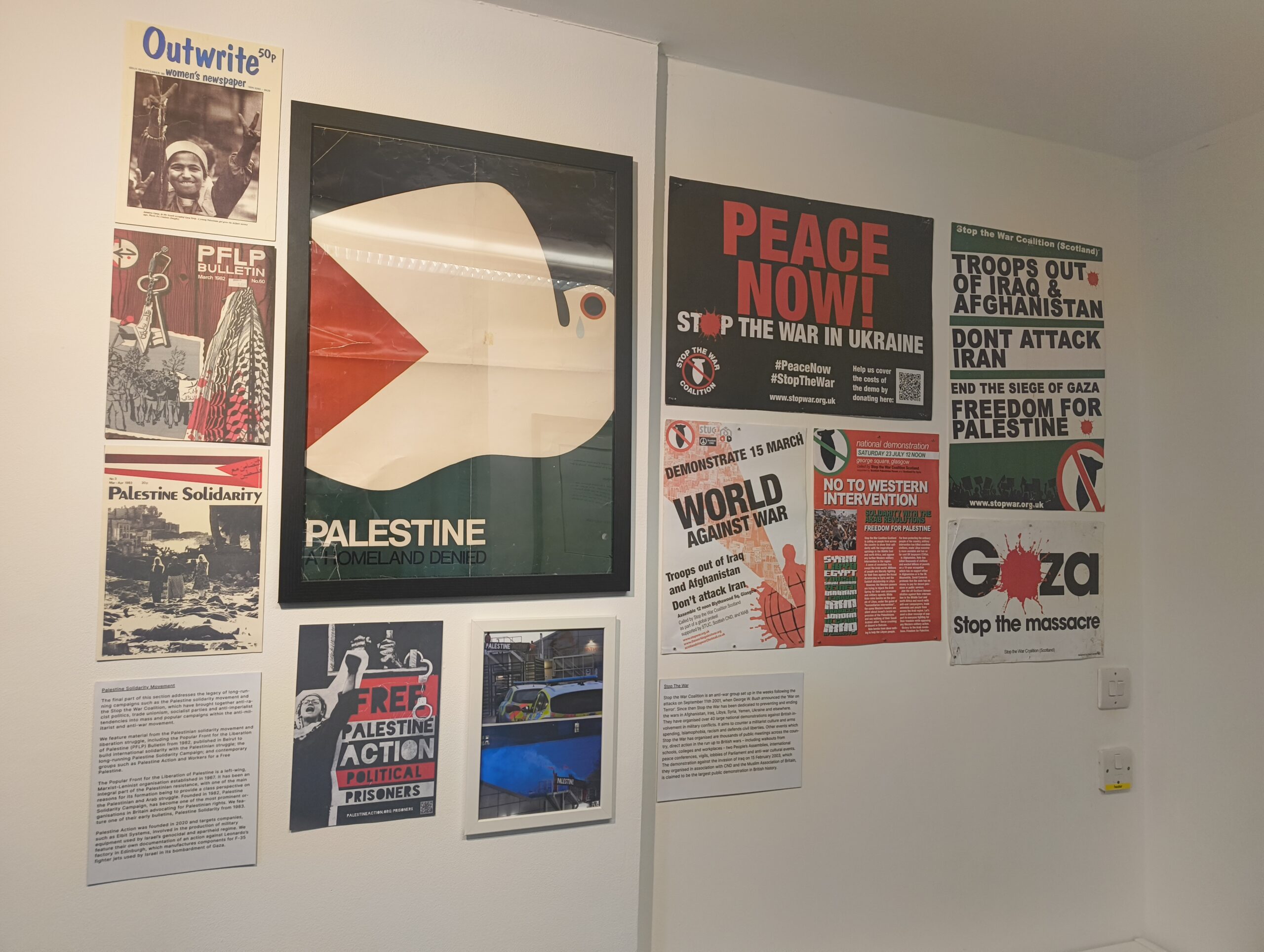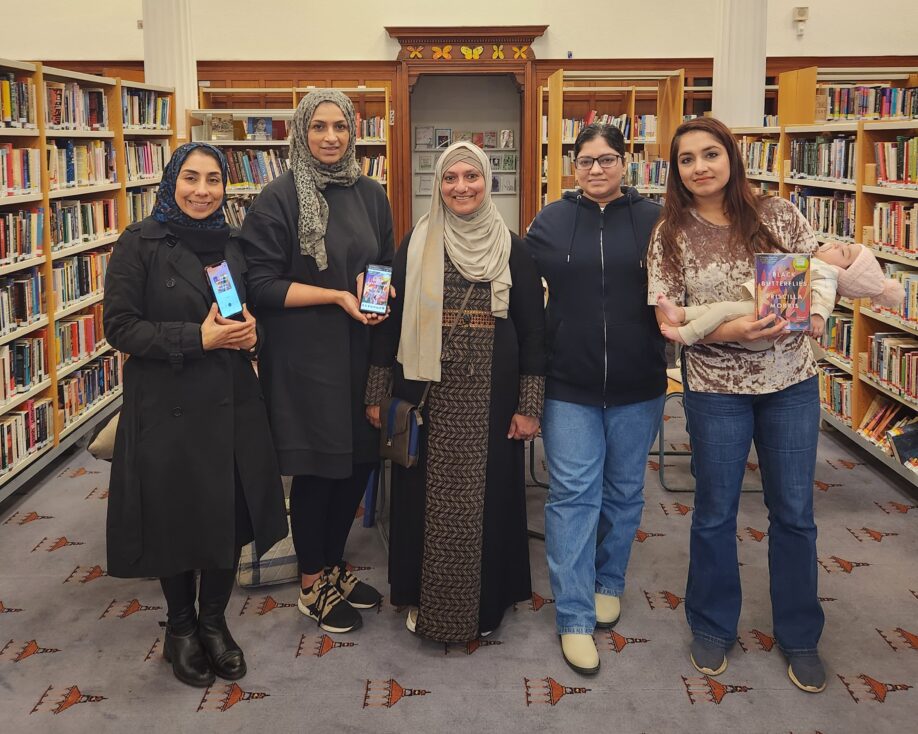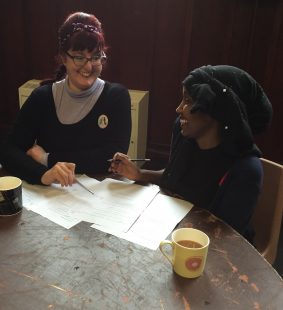
I think it was some time in 2010 when I first started volunteering as a literacy tutor at GWL. At the time, I was working in the soul-destroying world of company pension schemes and I felt that the life-blood was being sucked out of me by my day job. Volunteering a couple of hours a week at GWL was like having a blood transfusion with the most nourishing and invigorating blood imaginable – full of healthy corpuscles of encouragement, support, inspiration and cake. After volunteering for two weeks, I realised that I never wanted to leave…and I haven’t.
When I was made redundant from those pesky pension schemes, I cheered and went back to University to do a Masters in Community Learning and Development, improving my blood supply still further by doing my placement at GWL. As I was finishing the course, the year-long role of Outreach and Audience Development Worker came up so I applied. When Sue rang me and told me I’d got the job, I sobbed happily onto the shoulder of the stranger sitting next to me on the bus. I spent the next year wandering around Bridgeton talking to people (did I mention that I have the best job in the world?).
I was still doing my literacy tutoring, which I loved, and, shortly before my year as Outreach worker was coming to an end, the post of Adult Literacy and Numeracy Development Worker became available so I applied. When Adele rang me and told me I’d got the job, I sobbed happily onto the shoulder of the stranger sitting next to me on the bus.
And I’ve been here ever since. If the funding for this post is ever lost, I’m still coming to work anyway.
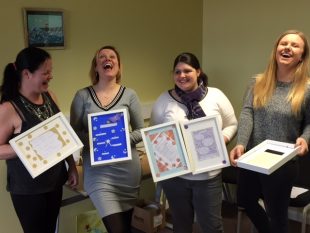
In my role I’m privileged to be able to support women with their reading, writing and numbers, but it’s about much more than that. Learning at GWL is at the heart of everything we do. It’s about increasing women’s confidence, skills, knowledge and understanding and nurturing their desire to learn more. It’s about supporting women to find their voice and embrace new opportunities. It’s about providing a safe and welcoming space where all women are valued and working with them to overcome the barriers that hold them back from being who they want to be and doing the things they want to do.
We support women with all levels of literacy skills – some want to be able to help their children with their homework, some didn’t attend school for many different reasons, some have started college after a long break from study, some don’t have English as a first language, some want to write stories, fill in forms, take a course, read for pleasure, do a crossword, research history, or simply spend a couple of hours a week doing something they want to do for themselves…the reasons to come are as many and varied as the women themselves.
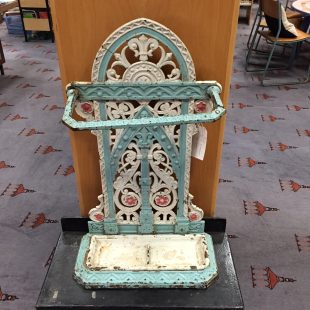
It’s really tough to come up with a favourite item from our collections as we have so many fantastic museum, archive and library items that call out to me. However, I think that I will have to choose our wonderful Victorian umbrella stand, painted by Suffragettes in Duke Street Prison. The Governor of the prison was said to have been sympathetic to the cause of women’s suffrage and Suffragettes weren’t force fed in Duke Street as they were in other prisons – most notably Perth Prison. So – presumably to alleviate the tedium of their days – the Governor gave the Suffragettes the umbrella stand and some tins of paint, and the women painted the stand in as close to the colours of the Women’s Suffrage Movement as they could get (green – for hope; white – for purity; purple – for dignity).
When Duke Street Prison was being demolished in 1958 a social worker who used to visit the prison and knew the history of the umbrella stand was walking past and saw it poking out of a skip. She dragged it out and, eventually, it found its way to us. As well as being a wonderful piece of social history, for me it also exemplifies how women’s history is often neglected, forgotten and – sometimes quite literally – thrown away. It’s on display in the library space and I walk past it several times a day, hopefully soaking up the positive, militant, rebellious spirit of those brave women who suffered so that I could have the vote. Like me, it’s found a permanent home and it’s here for good.

